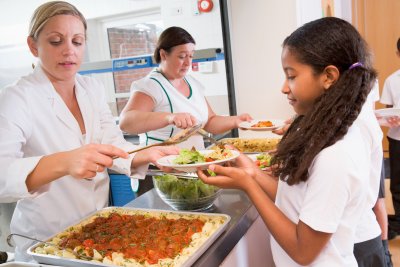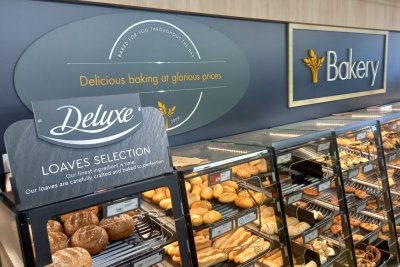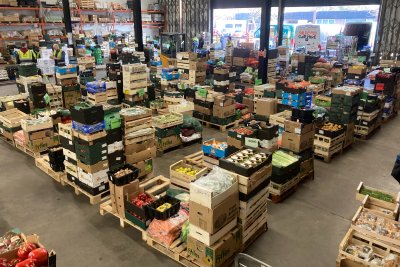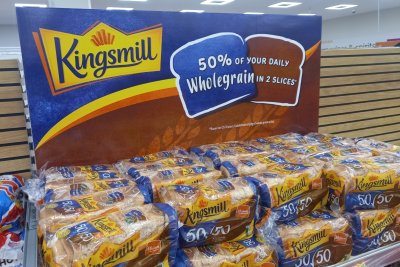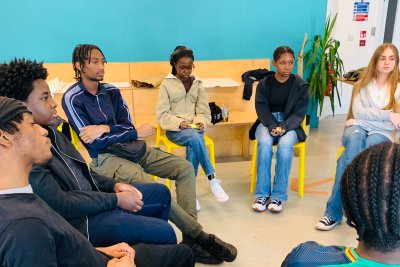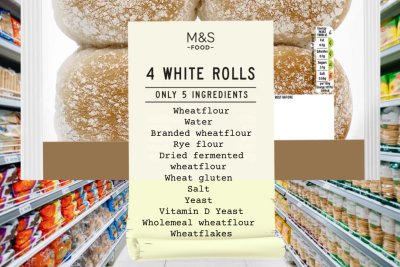 VideoBridging the Gap - procurement. Credit: Sustain
VideoBridging the Gap - procurement. Credit: Sustain
There are two unfolding crises affecting us today: an inequality crisis and a climate crisis. Yet, food that is good for the people and the planet is currently more expensive than food that is bad for health and the environment. We want to change that by Bridging the Gap between people experiencing low income and affordable climate-friendly food. Bridging the Gap is demonstrating the most effective policy interventions and financial strategies to create systemic change and focusing on six areas to tackle this issue, including public sector food opportunities. Bridging the Gap is introducing agroecological and organic food into schools in three pilots across Wales, Scotland and in Hackney, London.
Chaired by Sustain’s Ruth Westcott, Bridging the Gap’s third webinar explored the opportunities held by public sector food procurement to make climate and nature friendly food accessible for all.
Seizing the moment: it is time to talk about procurement
Public sector food is firmly on the political agenda across the nations. In March Will Quince MP announced a review on procurement standards, signalling a proactive step in governmental action. The current government has pledged to increase local and sustainable public sector food procurement by 50%, a policy backed by the Labour Party. Meanwhile, in Scotland, a consultation on The Good Food Nation Plan, including procurement, has just concluded. In Wales, the Sustainable Farming Scheme consultation has recently closed.
This webinar brought together public food sector experts from across the nations to discuss the positive impact that sustainable food procurement brings. Ander Zabala, Sustainability and Climate Manager for London Borough of Hackney, a lead signatory of the London Food Purchasing Commitment, Edward Morgan, from Welsh wholesaler Castell Howell Foods, which is supplying the Welsh Veg in Schools pilot with agroecological veg grown in Wales, And Sarah Gowanlock, Partnership Manager with Food For Life Scotland and lead partner on the Give Peas a Chance pilot.
Climate friendly food in public institutions
Nearly 10% of London’s greenhouse gas emissions stem from food and the London Food Purchasing Commitment is tackling this issue head on. The Commitment is empowering local authorities to ensure that food bought and served across council services is healthy, climate- and nature-friendly, and never wasted. The initiative was led by ReLondon, Sustain and the London Borough of Hackney. It took four months from the planning stage for Hackney Council to sign the commitment. Their targets included increasing plant-based meals at schools and more climate friendly food purchased.
Sustain is calling to see robust standards and legally binding commitments to make sure that we meet environmental and social targets. Standards should be properly monitored, and caterers should report to local authorities on whether they’re meeting targets. Ruth Westcott, Campaign Manager for Climate Change and Nature at Sustain said on this matter:
“All public sector food should reflect a diet that’s compatible with the Climate Paris Agreement.”
Food security and local supply chains
To transform supply chains for the better, collaboration with wholesalers is essential. Edward highlighted how Castell Howell Food annually imports three and a half thousand tons of frozen vegetables from the Netherlands, which comes with an environmental footprint. Importing fruit and veg also overlooks the potential social and financial contribution it could have for Wales if they bought produce from Welsh growers instead.
Edward called for investment now in local producers as one way to create shorter, efficient supply chains. The Welsh Veg in Schools pilot is co-funded by Bridging the Gap and led by Food Sense Wales and aims to create new supply of agroecological vegetables into schools across five local authorities, supplied by Castell Howell.
“Collaboration is needed […] We need farmers on board, customers, supply chains and the logistics behind it. We are looking at a shorter but more efficient supply chain.”
The role of partnerships
Food For Life Scotland (FFLS) works in partnership with local authorities across Scotland to get good food onto school plates and the Food for Life Served Here Award is a recognised mark of quality. FFLS are leading the Bridging the Gap pilot Give Peas a Chance, which has built its success on strong partnership working from the outset. Thanks to collaboration between Aberdeen City Council Catering Service, supplier TPS and Aberdeenshire farmer Phil Swire, organic peas are making their way to schools across the city. The project is creating a new market for local organic peas while educational activities are supporting school children to learn about the environmental and social benefits of eating locally grown organic peas.
“The procurement team from the council was involved from very early on, they recognized the potential. All in all, partnerships are working, everyone [is] involved from the beginning, breaking down barriers between different organisations.”
Solutions
1. Invest now for the future
Cost is a significant barrier to making agroecologically grown food more accessible. This is true within public sector food procurement where half of councils have warned they will go bankrupt in five years. But Edward and Ander underscore the need to invest now and adopt different approaches to avoid the consequences of greater supply chain stresses and adverse health effects in the future. We must invest now and strike a balance between cost and value while collaborating with local suppliers.
There is a long way to go. The Soil Association Food For Life gold award of 15% organic food in public procurement would be a significant leap from the current levels in many catering services.
“The value that we put on food, whether that be around health, supporting local producers and suppliers, or the environment and biodiversity, showcases the benefits that you get when you support organic produce.”
2. Remove the red tape
Welsh Veg in Schools is redesigning supply chains to make them fairer and more resilient. One way to do this is making it easier for growers to jump through the hoops needed to access procurement contracts.
Edward says we also need to engage more conventional farmers:
“By reducing the market risks associated with horticulture, it becomes a more attractive option for farmers, especially with the assurance of price guarantees. On a policy level, investing time and money is crucial to make horticulture appealing to young farmers.”
3. Plant based food procurement
Ander’s work highlights a shift towards promoting plant-based diets, prioritising vegetables, and pulses in public sector food. He suggested that reducing meat consumption could allocate more budget to enhance the quality of purchased food. The focus is on reducing meat and increasing vegetables to improve dietary choices and allocate resources more effectively.
Alongside targets, Ander argued we need a national indicator for climate-friendly food procurements in councils. He also championed taxing Ultra-Processed Foods (UPFs) while subsidising healthier alternatives and influencing food sector policies to promote the use of more beans and pulses.
Final Reflections
Sarah stressed the need to work together and let go of preconceived ideas about the projects.
“There are some amazing wholesalers out there, procurement teams, caterers, etc... bring them together!”
Ander addressed local authorities, emphasising the need to get started without expecting to get everything right straight away.
“Work with schools when you can since most of them are keen to support climate-friendly food but need support.”
For Edward it is about being entrepreneurial and try something new, even if it is on a small-scale to start with.
Read more about Bridging the Gap’s school food pilots:
Bridging the Gap: Exploring ways to make organic food more accessible via farmer-focused supply chains.

